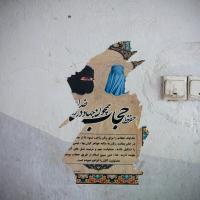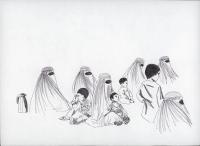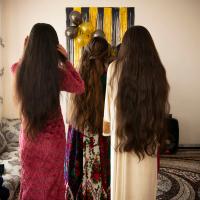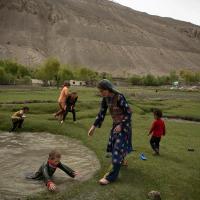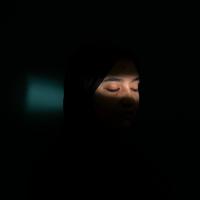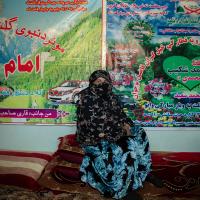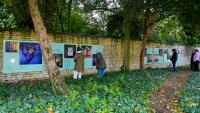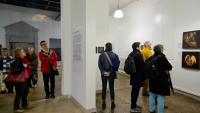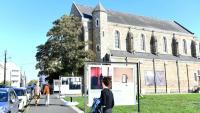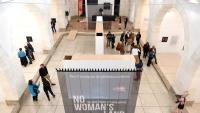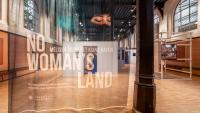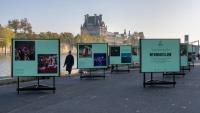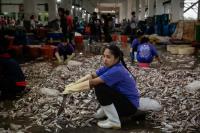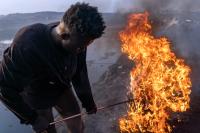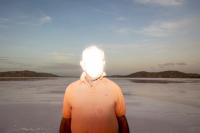14° Edition
Afghanistan: No Woman's Land
The 14th edition of the Carmignac Photojournalism Award is dedicated to the condition of women and girls in Afghanistan following the return of the Taliban to power in August 2021. The Award was granted to the reporting project proposed by the duo of Canadian-Iranian photojournalist Kiana Hayeri and French researcher Mélissa Cornet, which was produced over a six-month period with the support of the Fondation Carmignac.
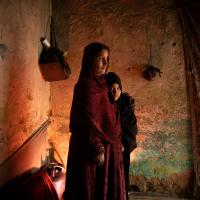
Kabul, Kabul, Afghanistan, February 8, 2024. A mother is struggling to provide for her children under dire circumstances. © Kiana Hayeri for Fondation Carmignac
An Intimate Look into the Battle for Women’s Rights in Afghanistan
Between January and June 2024, Kiana and Mélissa travelled to seven provinces in Afghanistan* to investigate the conditions imposed on women and girls by the Taliban, which, according to Amnesty International’s research, could constitute a possible crime against humanity of gender-based persecution.
They met with more than 100 women and girls, barred from going to school, forced to stay at home, women journalists and activists continuing to fight for their rights, mothers watching with horror as history repeats itself for their daughters, as well as LGBTQI+ individuals. They documented how the Taliban, allowed by a deeply patriarchal society, have systematically erased women from society, taking away their most basic rights: to go to school, to university, to work, to travel, to dress as they wish, to go to public baths, to parks, or even to the beauty salon.
In late August 2024, the Taliban regime further tightened its control by enacting a new law requiring women to fully cover their faces with a mask and prohibiting them from having their voices heard in public, including singing, reciting, or reading aloud.
Faizabad, province de Badakhchan, Afghanistan, 11 mai 2024. Dans la capitale de cette province du nord, une affiche déchirée explique comment les femmes doivent couvrir leur visage : avec une burqa ou un niqab qui ne laissent visibles que les yeux.
© Kiana Hayeri pour la Fondation Carmignac
The starkest change that Kiana and Mélissa noted since August 2021 was the general loss of hope among women that things might improve for them, as dreams of having an education and becoming members of society were shattered before them, becoming the primary victims of recurring economic and food crises, and a health system that has all but collapsed.
In the words of one women’s rights activist, who has since left the country, seeing no future for herself in Afghanistan: « We have forgotten joy, we don’t know from where any can be found. I’ve lost all motivation. I cry alone, hidden. It’s as if someone has locked me in a room and won’t let me outside. Even food has no taste. »
Kiana and Mélissa used different media to document this highly sensitive situation, including photographs, sketches, and videos, but also art created collaboratively with Afghan teenage girls.

Villa Pérochon, Niort
06 Nov — 29 Nov 2025

Pavillon Grappelli, Niort
06 Nov — 29 Nov 2025

Saint-Nazaire
06 Oct — 29 Oct 2025

Galerie des Franciscains, Saint-Nazaire
06 Oct — 29 Oct 2025

Change Now Summit 2025, Grand Palais, Paris
24 Apr — 26 Apr 2025

Réfectoire des Cordeliers, Paris
25 Oct — 18 Nov 2024

Quai de Solférino, Paris
31 Oct — 18 Dec 2024
MUNTAKA CHASANT Photojournalist, 13th laureate of the Carmignac Photojournalism Award CHÉKÉBA HACHEMI President and Founder, Afghanistan Libre
ZAHRA NADER Editor-in-Chief, Zan Times
KATHERINE POMERANTZ Director of Photography, TIME Magazine
LAURENT RICHARD Director and Founder, Forbidden Stories
FIONA SHIELDS Head of Photography, The Guardian
KYLE WARD Deputy Secretary General, Amnesty International
Dimitri Beck Director of Photography, Polka Magazine Representative of the pre-jury on the jury
Shoair Mavlian Director, The Photographers’ Gallery, London
Tess Raimbeau Photo Editor, Libération



